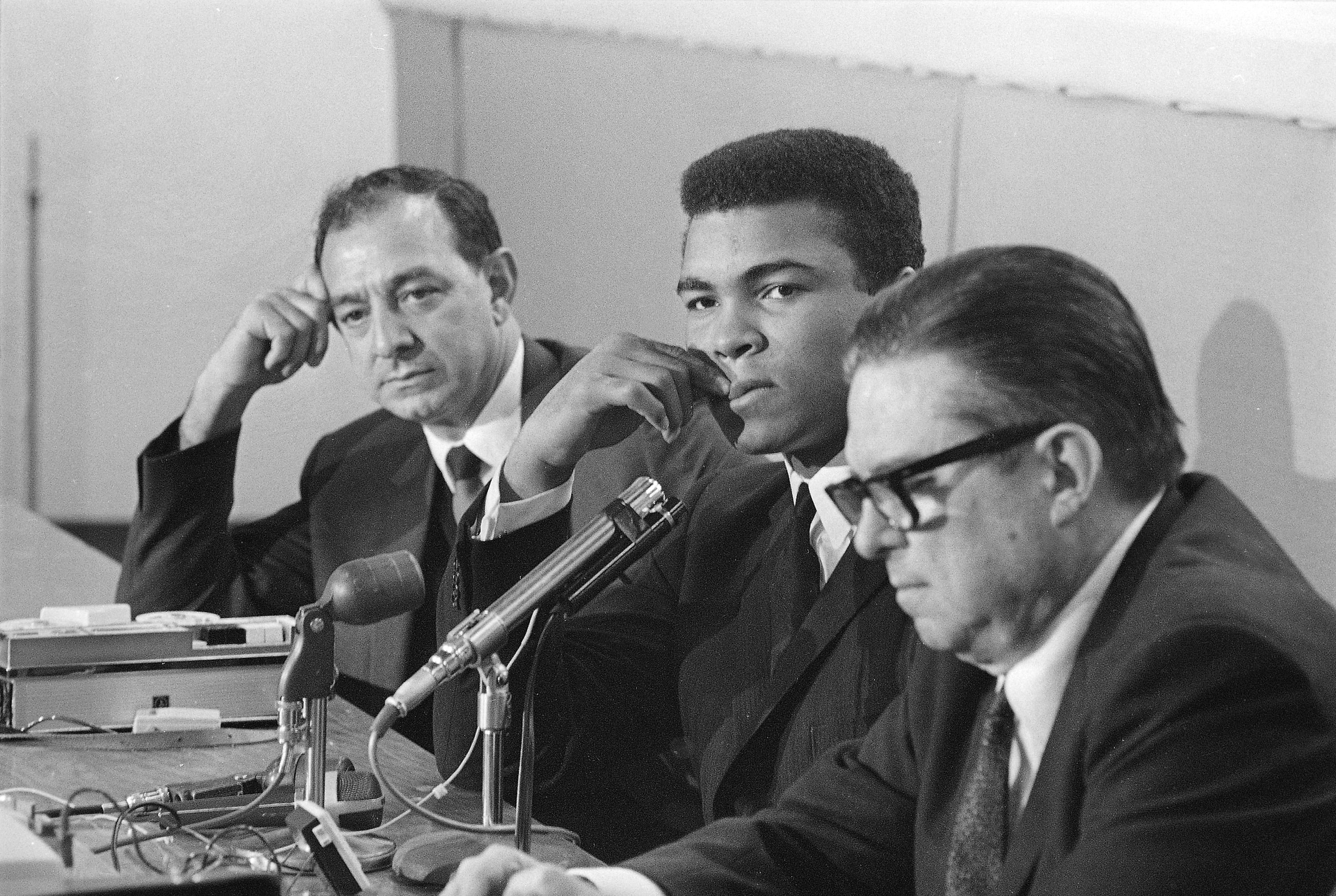Editor's note: The following is an opinion piece. The writer is not employed by Military Times and his views do not necessarily represent those of Military Times or its editorial staff.
The death of Muhammad Ali reminds me of not only the time I met him, but of several other events in my own life.
In August 1990, right after Saddam Hussein’s invasion of KuwaitIraq, I was asked to speak about the situation at the annual meeting of a major company, which took place at a room in a restaurant in southwestern Michigan. Unbeknownst to me, Ali had a farm in the area and he was in the main part of the restaurant. Having heard me speak too often, my wife wandered into the restaurant during my talk, where she met Ali (who gave her his autograph) and his wife.
After my speech my wife introduced me to him, and we discussed the impending war. I assured him that, unlike Vietnam, we would have several allies, including many Arab and Muslim nations; that we would also have U.N. authorization; and that our goal would be limited to evicting Saddam from Kuwait if he did not leave after our military buildup in the area.
I also told him how much I admired him for standing up for his principles and not going to Vietnam, a war he opposed on moral grounds, even though it cost him his boxing title, millions of dollars in lost revenue, the opprobrium of many of his fellow citizens (including some African-American leaders), and a potential jail sentence. I especially admired given that he could have beaten the system and avoided the war, like Dick Cheney, who was the secretary of defense at the time and about the same age as Ali (and I me). I also told him that I was impressed at how well he was dealing with Parkinson’s, a disease my late mother was also coping with at the time.
Thinking about my meeting with Ali also brought back two specific memories of my own time in the service. First, in the summer of 1964, at the time of the Gulf of Tonkin incident, I was a naval flight officer in Patrol Squadron 1. My commanding officer, a WWII and Korean War veteran, told me that the claims by of the Lyndon Johnson administration about what really happened in the gulf were bogus, something we did not discover until a decade later, after nearly 60,000 brave men and women and millions of Vietnamese died.
Second, in 1966 when I was in Cam Ranh Bay tasked with the job of coordinating our air assets with the swift boats, I had to ride on a swift boat patrol one night. It was the scariest thing I have ever done, and one that had Karl Rove and the Bush acolytes ever done, would have led them to refrain from trashing John Kerry in the 2004 election. During the patrol, I asked the commander why he had volunteered for such a dangerous mission (the Navy could not make you do this). He told me that he was from Alabama and that he wanted a future in politics, and that avoiding service in Vietnam would have made that impossible.
Over the years, I often wondered what became of him (I hope he survived), and what he thought of draft dodgers and draft evaders like Bill Clinton, George W. Bush and Dick Cheney who not only did not pay a price for beating the draft, but ascended to the highest offices in the land. I believe that if either Bush or Cheney had been to Vietnam as they should have been, they would not have believed that American forces would be greeted as liberators in Iraq, something that came clear to me shortly after I got to Vietnam. Nor has avoiding service in Vietnam kept Donald Trump from getting the Republican nomination for president.
I am proud of the time I spent in the service and would do it again a heartbeat. I am also grateful to my late father, who when I received my draft notice told me that we did not have deferments in our house (my younger brother also served in Vietnam), and asked me whether I believed that because of my education I was better than our paper boy, who was killed in Vietnam.

Ali ponders a question during a Houston news conference Jan. 11, 1967, after he lost his bid to be classified as a conscientious objector.
Photo Credit: Ed Kolenovsky/AP
I am also proud of those people like Muhammad Ali and Sen. Bernie Sanders, whom I supported in the Democratic primary. They stood up against the war rather than beating the system by such measures as pretending to join the ROTC (as Bill Clinton did), using political influence to get a secure spot in the National Guard and reserves because everybody knew that they would not be activated (as George W. Bush did), or beating the system by getting married and having a child (Cheney took a pregnancy certificate to the draft board 13 weeks after his wife became pregnant).
I am also grateful to have played a role in the Reagan administration, helping to ensure the viability of the all-volunteer force, so that we do not have to return to the unfair draft system.
Rest in peace, Muhammad. Take your place in heaven alongside those brave men and women who served or protested and did not beat the system, and who paid a heavy price for their service or protest. And if you ever run into that swift boat commander, please tell him how much I respect and admire him as well.
Korb served on active duty as a naval flight officer for four years, and retired from the Navy Reserve as a captain. He is a former assistant secretary of defense.





